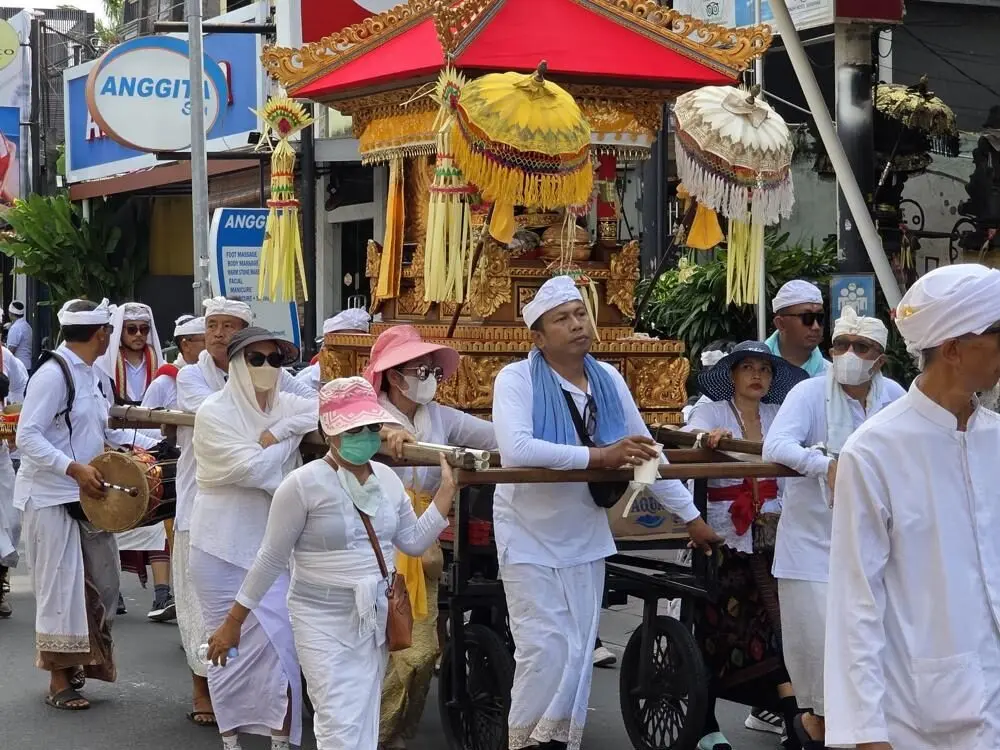AN ISLAND WHERE TIME HAS ITS OWN RHYTHM
In Bali, time does not simply march forward in a straight line. It circles, layers, and overlaps, creating a rhythm that is both intricate and deeply connected to the island’s spiritual life. Days are not just weekdays and weekends; they are moments charged with meaning, dictated by centuries-old cycles that determine when to plant rice, when to honour ancestors, and when to celebrate the gods. For visitors, the Balinese approach to time can feel like stepping into a parallel world – one where the calendar is not just a tool for marking dates, but a map for living in harmony with nature and the divine.
TWO CALENDARS, ONE ISLAND
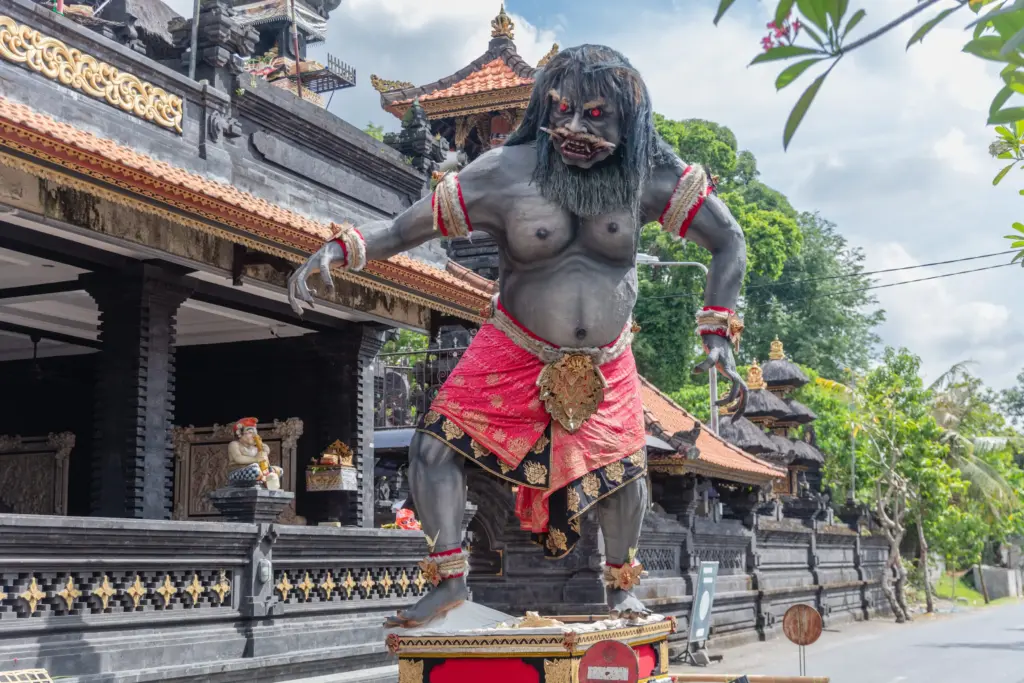
The Balinese keep two distinct calendars: the Pawukon and the Saka. Both are in constant use, layered over the familiar Gregorian calendar, creating a web of dates and rituals that rarely align neatly with the Western year.
The Pawukon calendar is a 210-day cycle, divided into ten concurrent “weeks” of varying lengths – one week is just one day, another is two days, another three, and so on up to ten days. Each day belongs to multiple weeks at once, and the specific combination determines which rituals or ceremonies should take place. It is a complex system, almost impossible for outsiders to fully track without a local guide, but it ensures that ceremonies are spread throughout the year in a harmonious rhythm.
The Saka calendar, on the other hand, is lunar-based and used primarily for setting major religious festivals. It follows the phases of the moon and has twelve months, occasionally adding a thirteenth to stay in balance with the solar year. Many of Bali’s most significant celebrations – including Nyepi, the Balinese New Year – are set according to the Saka calendar.
For the Balinese, these two calendars work side by side. One governs daily temple life and local rituals, the other orchestrates island-wide festivals. Together, they create a cultural heartbeat that repeats endlessly, with every cycle seen as a renewal.
TIME AS A SPIRITUAL FRAMEWORK
For many in the West, time is measured in hours worked, holidays booked, and years passed. In Bali, time is something sacred. Each day is an offering in itself – a chance to maintain balance between humans, nature, and the spiritual world.
This philosophy is rooted in Tri Hita Karana, the belief in three harmonies: with God, with other people, and with the environment. The calendar is the practical expression of that belief. It ensures that there is a time to honour the gods, a time to repair relationships, and a time to tend the land.
This approach also means that everyday life is punctuated with rituals. What might seem like an ordinary Tuesday to a visitor could be a day for blessing tools before the planting season, or a day to cleanse the household shrines. Time is never empty; it is always carrying a purpose.
MAJOR FESTIVALS ACROSS THE YEAR
Nyepi – The Day of Silence
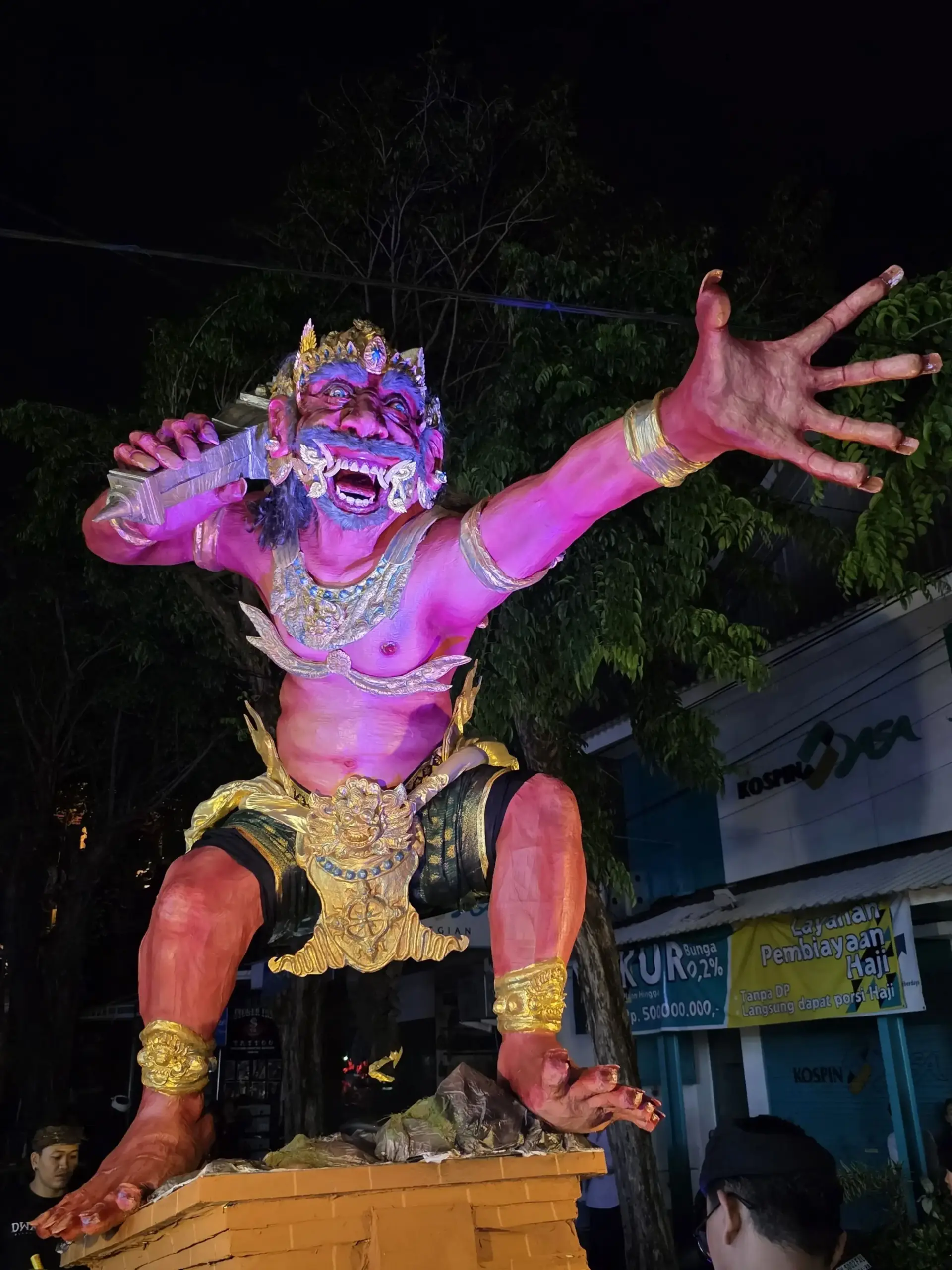
Nyepi is perhaps the most famous of Bali’s festivals, but it is unlike any other New Year’s celebration in the world. It begins with the vibrant chaos of the Ogoh-Ogoh parade the night before, when giant papier-mâché demons are carried through the streets, symbolising evil spirits being lured out and driven away.

Then, for a full 24 hours, the entire island falls silent. No one works, travels, or uses electricity. Even the airport closes. The streets are empty, and at night, the island is cloaked in darkness. For the Balinese, it is a time for meditation and purification; for visitors, it can be a profound experience to feel an entire island pause together.
Galungan and Kuningan – The Spirits Return
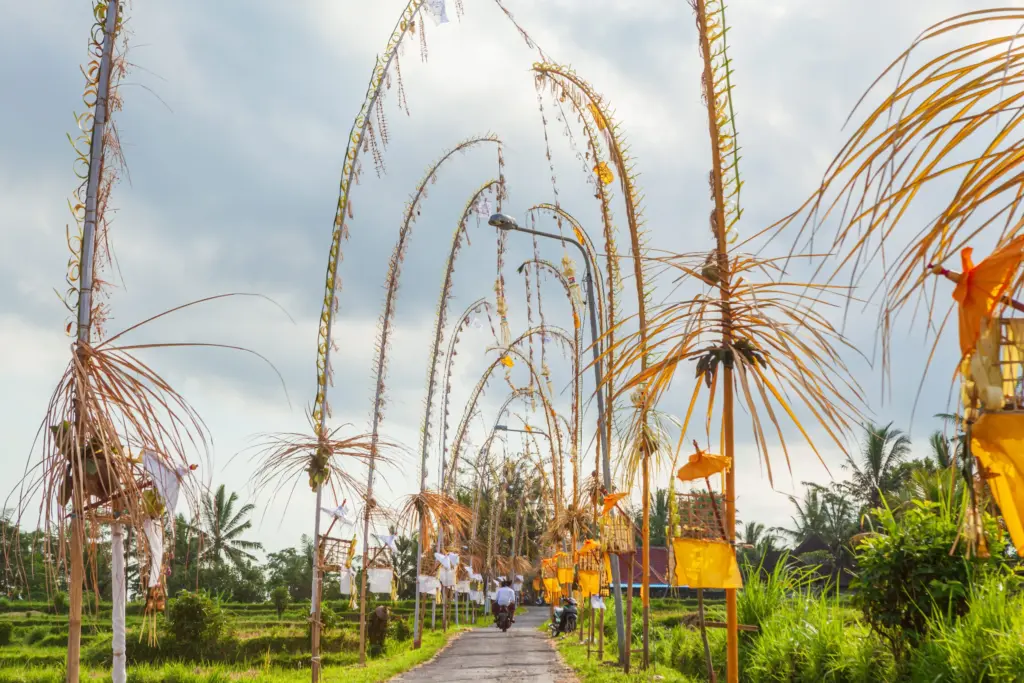
Galungan marks the time when ancestral spirits return to the earthly realm. Families decorate tall, graceful bamboo poles called penjor outside their homes, each one laden with coconut leaves, fruit, and flowers. Temples fill with offerings and prayers.
Ten days later comes Kuningan, when the spirits return to the heavens. On this day, offerings are even more elaborate, and many villages hold dances to honour the visiting ancestors before bidding them farewell.
Saraswati – Honouring the Goddess of Knowledge
In the Balinese calendar, knowledge itself has a sacred day. On Saraswati, books and sacred texts are blessed, and students bring offerings to their schools. It is a reminder that learning is a gift, and wisdom is something to be cherished and protected.
Pagerwesi – Strengthening the Mind
Pagerwesi, which means “iron fence,” is a day dedicated to fortifying oneself spiritually against negative forces. Offerings are made at family temples, and it is a time for reflection on personal discipline and moral strength.
SMALLER FESTIVALS WITH BIG MEANING

While the major festivals draw the most attention, Bali’s smaller celebrations are just as significant for understanding the culture. The Pawukon calendar ensures that every few weeks brings another reason for ceremony.
There are days dedicated to blessing tools and machinery, days for cleansing sacred objects, and days for honouring specific deities. One week might see the entire village at the temple for a tooth-filing ceremony, the next might bring a harvest blessing in the rice fields. These rituals keep the link between people and their environment alive.
THE UNFOLDING OF A CEREMONY
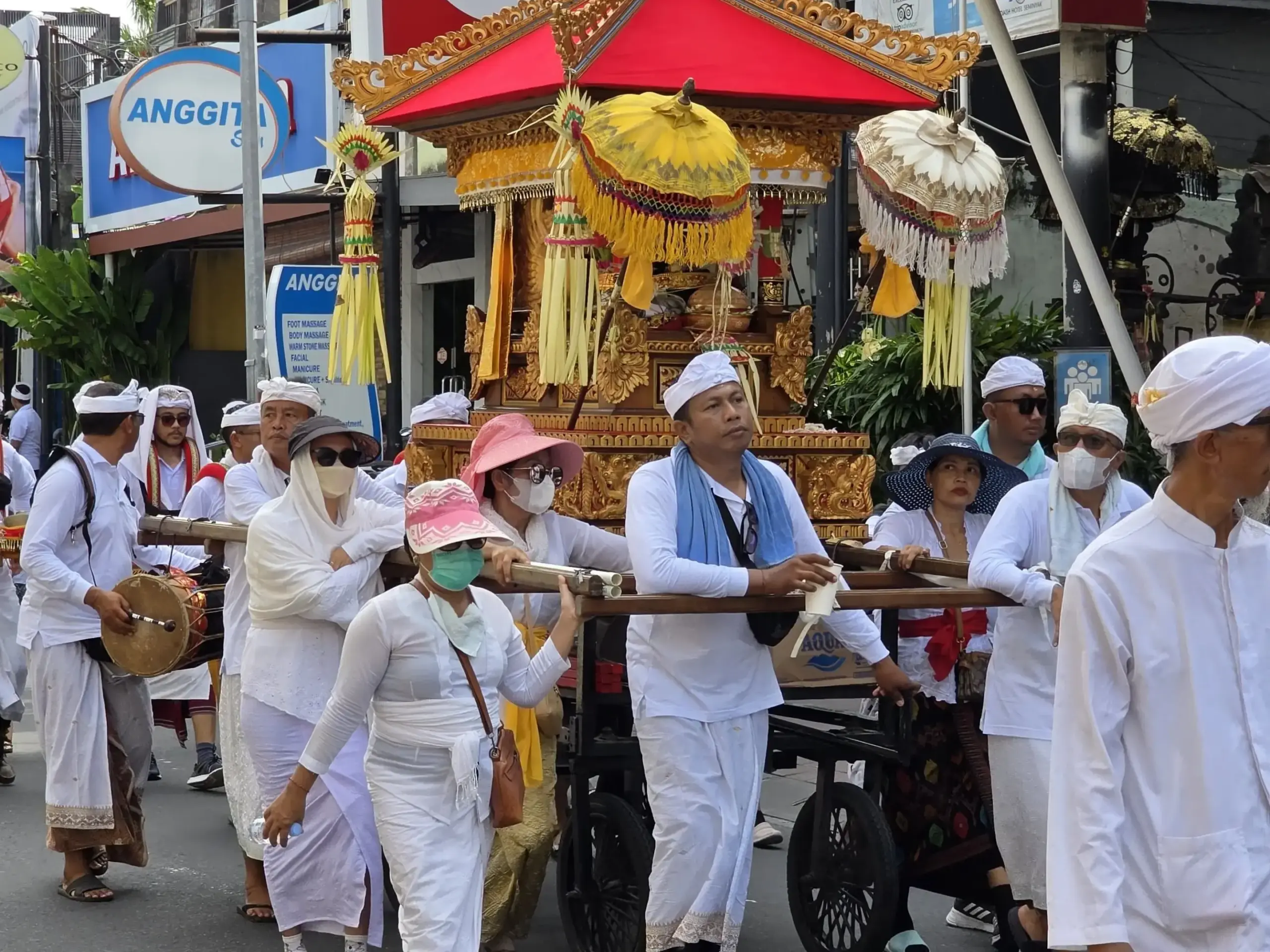
Attending a Balinese festival is not just about watching a performance – it is about stepping into a sequence of events that have been unfolding the same way for generations.
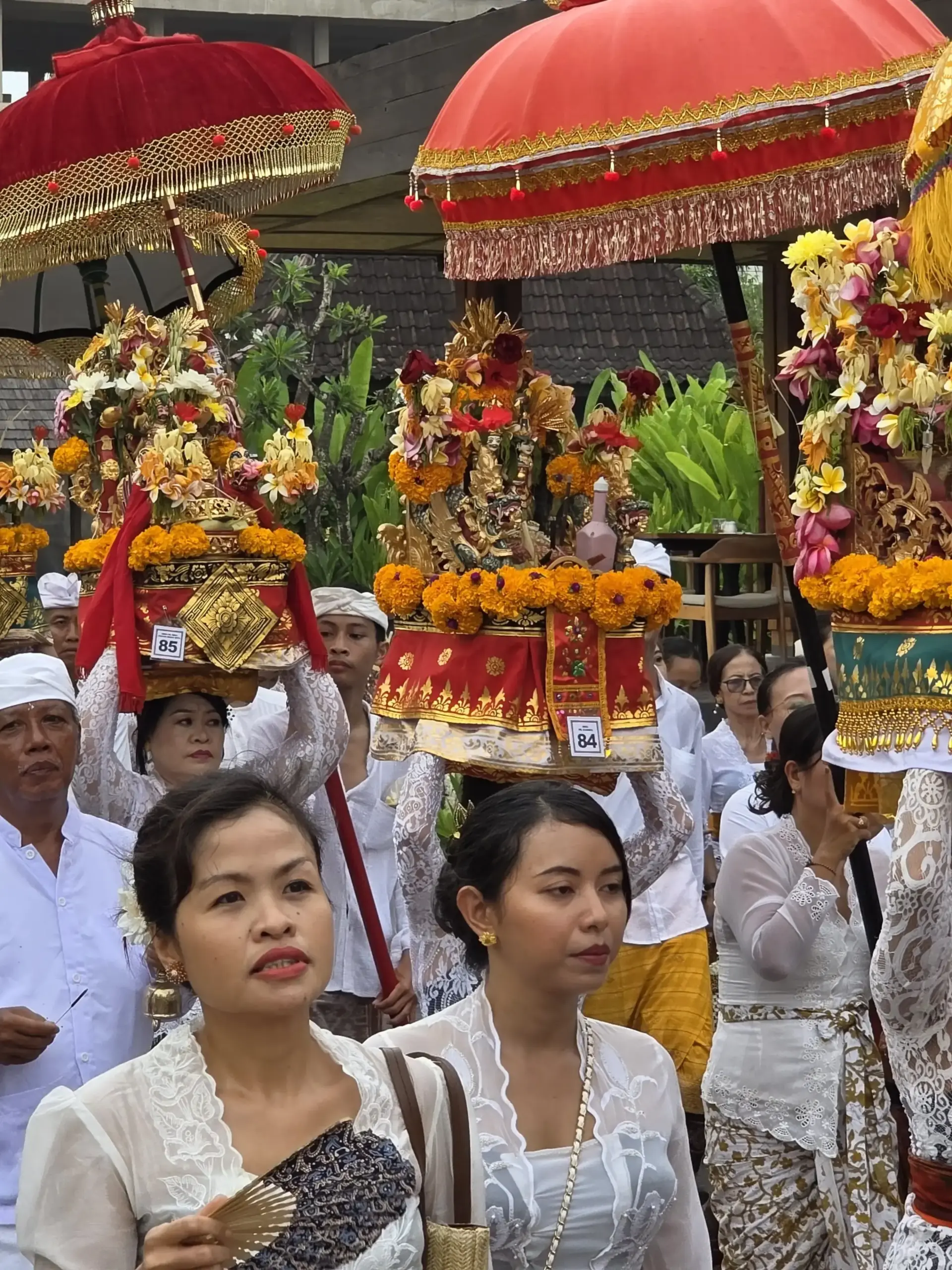
It might begin in the early morning with women preparing banten, the beautifully arranged offerings of flowers, rice, and incense. Men may be seen carrying bamboo poles or assembling temporary pavilions. By mid-morning, the temple courtyard fills with colour: golden umbrellas flutter, gamelan music shimmers, and dancers move with precise, symbolic gestures.
What is striking is how the sacred and the social blend seamlessly. Children play in the shade, vendors sell snacks outside the temple gates, and relatives greet each other warmly. The festival is not a performance – it is life, heightened.
EXPERIENCING THE CALENDAR AS A VISITOR
Travellers often arrive in Bali unaware that their trip coincides with important dates. Learning even a little about the island’s calendar can transform a visit. Knowing when a Galungan or Nyepi is taking place allows you to witness – or respectfully take part in – something truly special.
It is important to remember that these are not tourist events. They are community rituals with deep meaning. If invited to a ceremony, wear modest clothing, including a sarong and sash, and follow the lead of locals. Many festivals welcome visitors, but they expect them to be observers, not distractions.
Guides and homestays in rural areas can help travellers connect with these moments. Some villages offer cultural programs that allow visitors to learn how offerings are made, join in a gamelan rehearsal, or watch a dance performance that is part of the festival rather than staged for an audience.
WHY UNDERSTANDING THE CALENDAR CHANGES THE WAY YOU TRAVEL
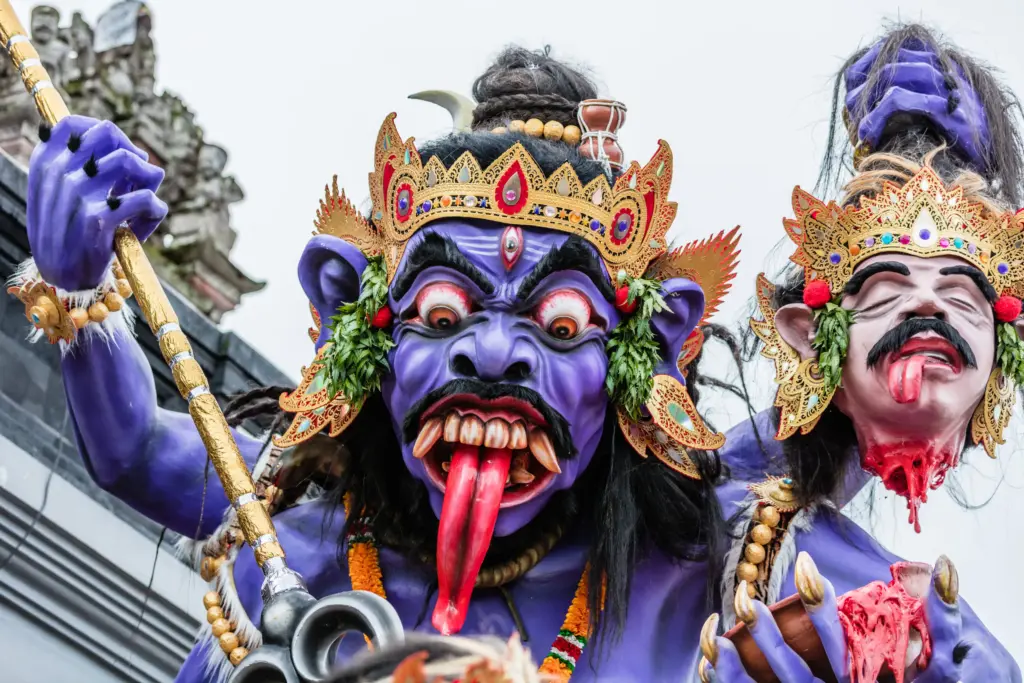
Once you start to see Bali through its own measure of time, you begin to understand why life here feels different. The festivals are not interruptions to daily life – they are the core of it. The calendar ensures that every part of existence is acknowledged: the cycles of nature, the duties to family and community, and the relationship to the unseen world.
For travellers, tuning into this rhythm can bring a deeper connection to the island. Instead of chasing a checklist of sights, you can let the calendar guide you – perhaps finding yourself in a mountain village during a temple odalan, or in a coastal town when fishermen bless their boats.
STEPPING INTO BALI’S TIME
Bali’s calendar is a living thread connecting past, present, and future. It is a reminder that time can be more than a schedule – it can be a sacred cycle that shapes how we live, what we celebrate, and how we understand our place in the world.
To experience it is to feel Bali’s pulse. Whether you arrive during the quiet of Nyepi, the joy of Galungan, or a lesser-known village ceremony, you are stepping into an ancient rhythm. And in doing so, you may find that your own sense of time begins to change – becoming less about the minutes ticking by, and more about the moments that truly matter. Wander Beyond Ordinary!
